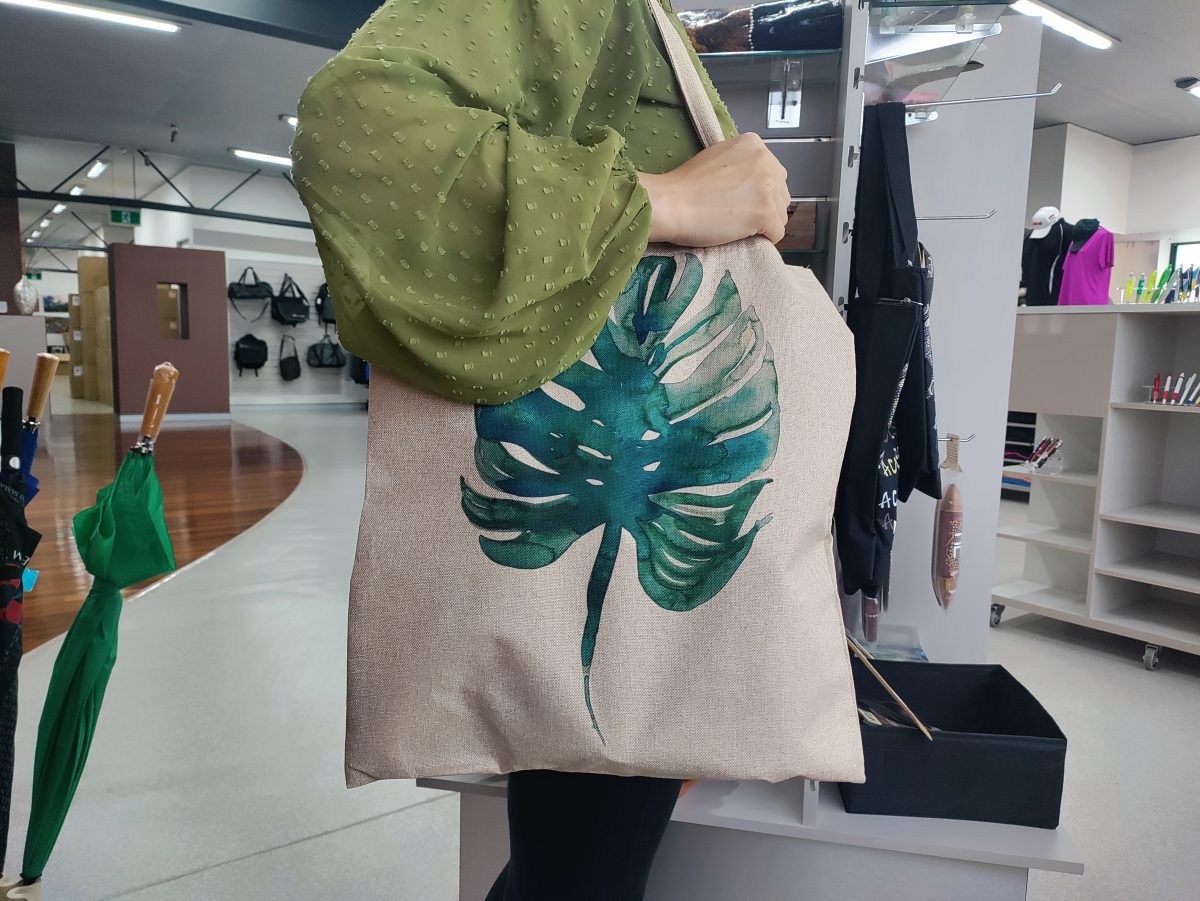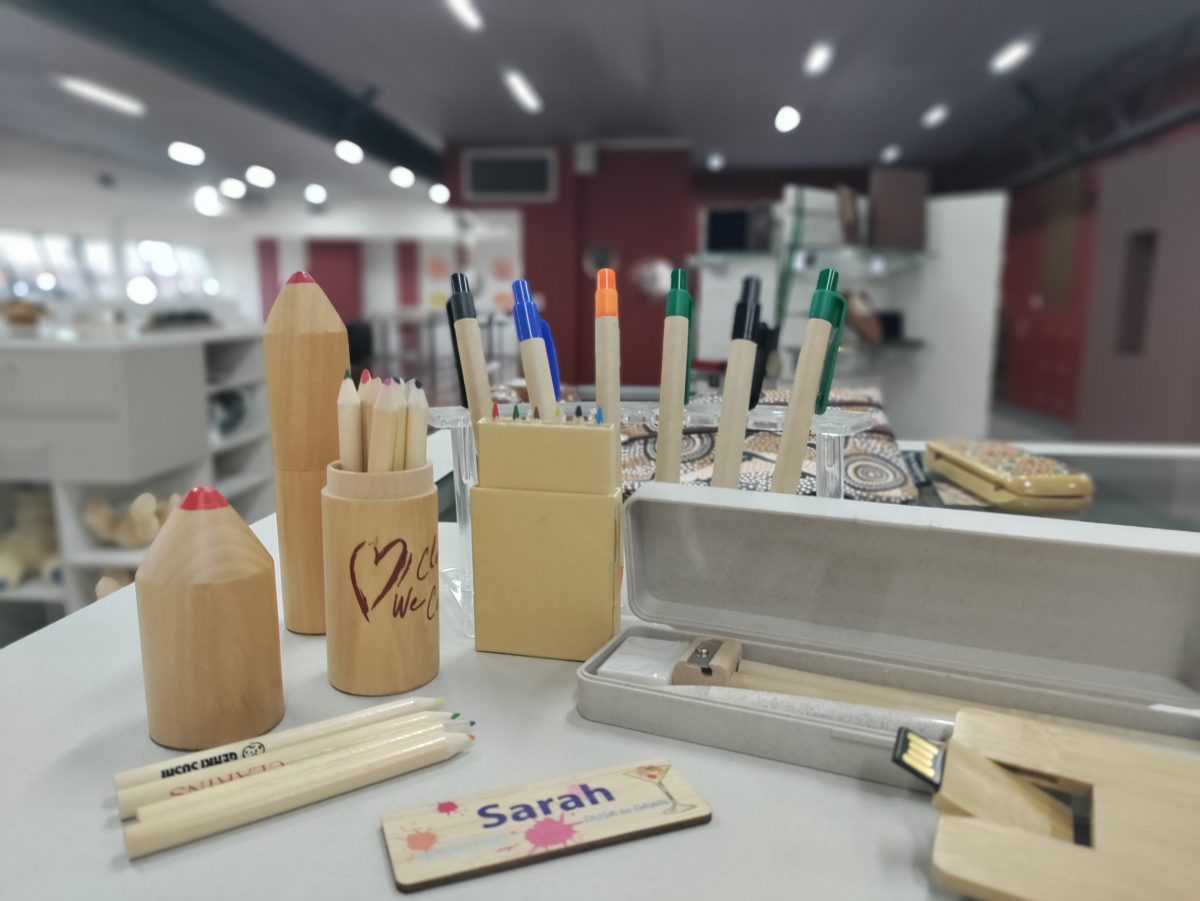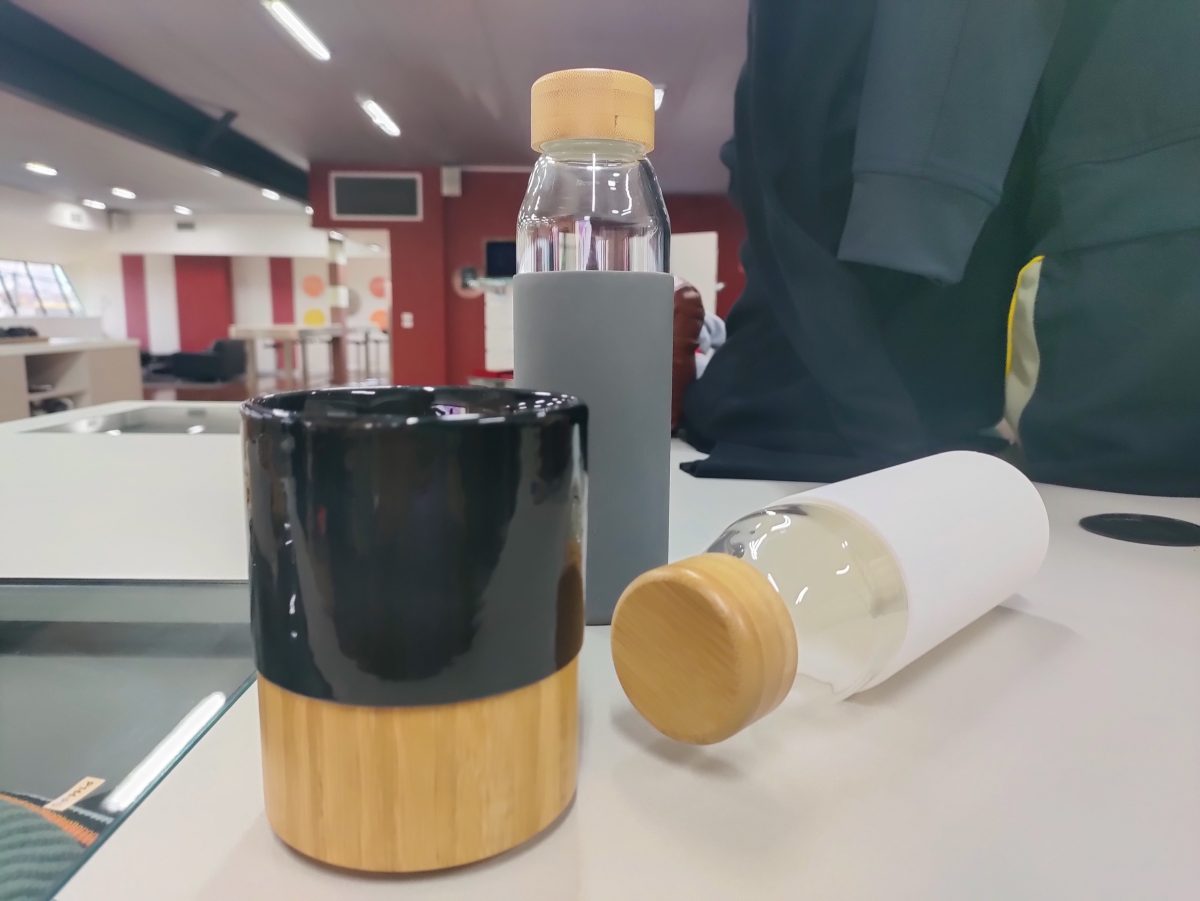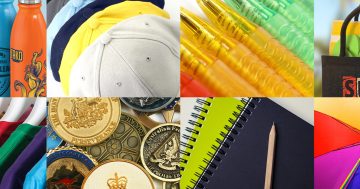
Promotional items for conferences can leave a lasting impression on attendees – so what do you want your merchandise to say about your company? Photos: BrandPro.
Consumer attitudes are shifting to prioritise sustainable practices. Recent reports show online buyers prefer to shop from ethical and sustainable brands in Australia, and many consumers are willing to pay more for sustainable products.
This presents some significant opportunities for businesses creating merchandise, whether for staff or customers, to bolster their reputations, consumer loyalty and profits, according to Gear For Life NSW sales executive Nadine Reid.
She says suppliers’ sustainability practices increasingly weigh in on consumer shopping habits and purchase decisions.
“We look at a lot of products available in the market, and a lot of it is cheaper plastic products that, let’s face it, end up at the bottom of the kitchen drawer or cupboard and ultimately, in landfill,” Nadine says.
“There’s definitely room for movement for companies to do better in this respect.”
Established as a premium products supplier some 30 years ago, Gear For Life’s lines of apparel and lifestyle goods are made to last. The business attracts a clientele that prioritises quality and is willing to pay more for premium, eco-friendly materials.
Nadine attributes last year’s sales growth – the best the company had experienced in a decade – to this.
“Even in the middle of COVID when things were really tough, our premium lifestyle products sold exceptionally well,” she says.
“We’re noticing our clients are asking more and more about our sustainability practices and products and our modern slavery and ethical sourcing requirements.
“The increase in demand for eco-friendly products is trending such that we’re now looking to have a sustainable tab on the website. All of the products we make that fall in that category – the ones that come with a Forest Stewardship Council label, for example – will be available at a click for clients who prioritise that.”

Eco-friendly merchandise reflects a company’s values when it comes to the environment.
Those clients include Canberra company BrandNet, whose custom merchandising wing BrandPro provides promotional products for corporate clients and small businesses in Canberra and surrounds.
BrandPro branch manager Caris Ebeling says there’s a big push for environmentally friendly merchandise, and it goes well beyond the moral imperative.
“Yes, choosing eco-friendly promotional products helps contribute to environmental conservation efforts,” she says.
”By opting for items made from sustainable materials, recyclable materials, or those with minimal environmental footprint, individuals and businesses can actively support the conservation of natural resources and the reduction of waste.
“But it’s also an opportunity to build brand loyalty and customer engagement. Consumers are becoming more environmentally conscious and many prefer to support businesses that share their values.
“Recommending environmentally friendly promotional products can foster a sense of loyalty among customers who appreciate a company’s commitment to sustainability. It can also enhance customer engagement, as eco-friendly initiatives often resonate positively with a broad audience.”
BrandPro sells everything from custom apparel to conference merchandise. Popular items are the ones that are most useful during conferences but also provide a good surface area for branding and can be reused long after the event. This includes tote bags, notebooks and pens, reusable water bottles and tech gadgets.
Conference products can be made from recycled materials such as PET (rPET) to help reduce waste and resource consumption. Alternatively, clients can opt for products made from sturdy yet biodegradable materials. Excellent tote bags can be made in materials like jute or hemp, pens can be made from bamboo and some “tree-free” notebooks use paper from alternative sources like sugar cane, bamboo or cotton.

Recent reports show online shoppers prefer to buy from ethical and sustainable brands in Australia, and many consumers are willing to pay more for environmentally friendly products.
Caris says choosing the right promotional items for conferences can significantly impact a business’s brand visibility and leave a lasting impression on attendees. Choosing environmentally friendly products reflects a company’s values and is an opportunity for differentiation.
“As the demand for eco-friendly products rises, recommending environmentally friendly promotional items can help businesses stand out in a competitive market,” she says.
“This differentiation can attract environmentally conscious consumers and clients who actively seek products that align with their values – a demographic we know is growing. It provides a unique selling proposition that sets a business apart from competitors and can contribute to increased market share.”
For more information, visit BrandPro.













